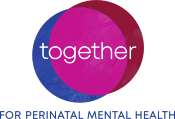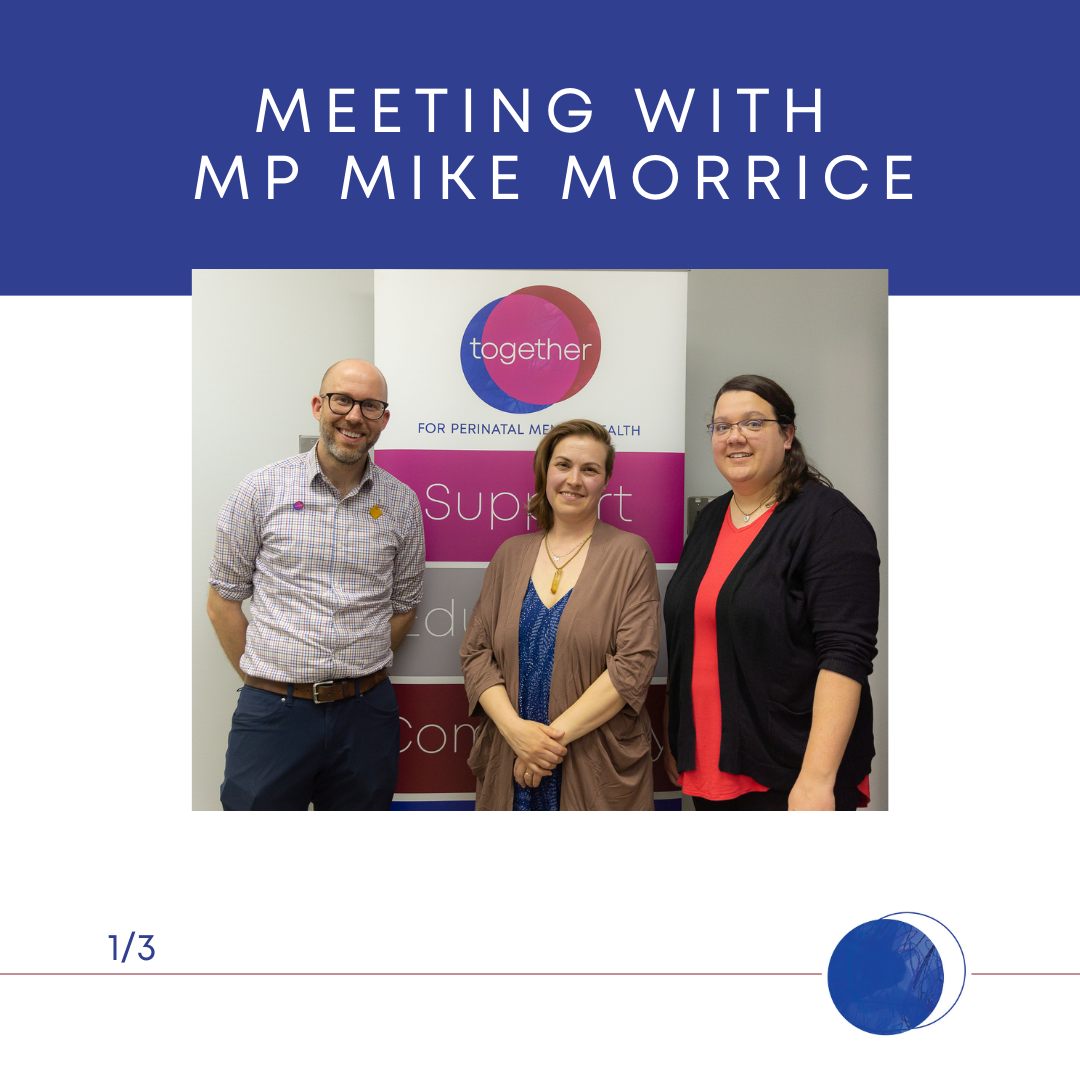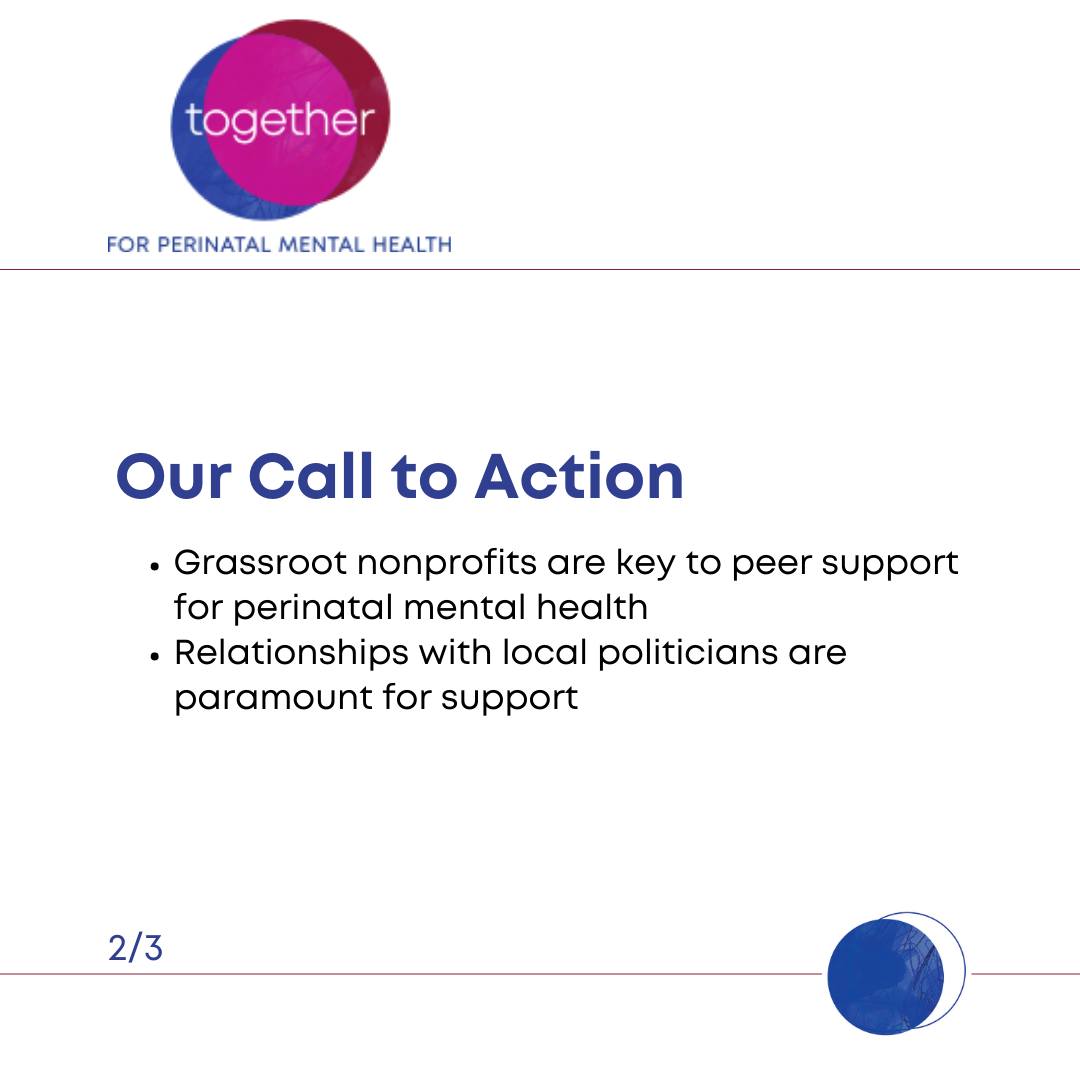Sophie Zivku
Together Waterloo Board of Directors
This May, during Preeclampsia Awareness Month, Together is drawing attention to how complications in pregnancy can increase risk of perinatal mood disorders, specifically anxiety and depression.
Preeclampsia is a rare, but serious disorder where pregnancy-induced hypertension occurs alongside other symptoms like proteinuria, changes in vision, shortness of breath, increased liver enzymes, and pulmonary, or neurological dysfunction. Preeclampsia occurs after 20 weeks gestation and can appear for up to six weeks after pregnancy. When left untreated, preeclampsia can lead to serious complications like seizure, stroke, heart disease, preterm birth, and even death.
Some things to know about preeclampsia:
- Preeclampsia affects five to eight percent of pregnancies worldwide.
- Black birthing parents in North America are 60 percent more likely to experience preeclampsia, and more severe cases of the condition, compared to white parents.
- Recent studies have shown a correlation between preeclampsia and perinatal mood disorders.
- Preeclampsia is one of the top five leading causes of maternal deaths worldwide.
- Those who experience preeclampsia have an increased risk of developing chronic hypertension and cardiovascular disease later in life.
- More recently, studies have shown a decrease in preterm preeclampsia by taking daily Aspirin starting at 13 weeks gestation up until 37 weeks for those at risk.
- Birthing parents over 40 are at higher risk of developing preeclampsia.
- Being pregnant with multiples can increase risk for preeclampsia.
The cure?
Delivering the baby.
Which seems simple, but many diagnosed with the condition are nowhere near full term. Doctors are left monitoring the health of both the birthing parent and baby for weeks, even months.
Early prevention is key. Knowing the risks of preeclampsia and reducing the symptoms often lead to more favourable outcomes. But the journey from diagnosis to birth is not an easy one. Being at risk of complications while pregnant can be psychologically draining. Your birth plan is compromised and often preterm labour occurs via induction or planned c-section.
While some medications such as Aspirin have been shown to reduce the risk of developing preeclampsia, continued monitoring is essential. This continued body regulation increases anxiety and stress which can lead to PTSD-like symptoms, making one vulnerable to developing postpartum mood disorders.
At 32 weeks gestation, I had sporadic hypertension, protein in my urine, my platelets were dropping and I had severe pain below my right rib. I was diagnosed with HELLP Syndrome, a variant of preeclampsia, and admitted to the hospital. HELLP Syndrome is often difficult to diagnose as it doesn’t always present in the same way as preeclampsia.
Over the next six weeks I was in and out of the hospital. Each time I was sent home, I was terrified to not be within arms reach of an operating room. While admitted, I was closely monitored for weeks and induced at 38 weeks. I was fortunate to have a smooth labour. For many without early detection of preeclampsia, the labour experience can be full of extreme anxiety and crisis.
After my son was born, everything went back to normal.
Except that it didn’t.
Any pregnant person is at risk of preeclampsia for up to six weeks after delivery. And I was at an increased risk due to HELLP Syndrome.
I counted down those 42 days like my life depended on it… which to my anxious mind, it did.
In addition to being terrified for my life, the stresses of being a new parent, breastfeeding challenges and sleep deprivation were too much. Anxiety and depression enveloped me. Finally after six long weeks, day 42 came. Physically my risk for pregnancy-related hypertension had lapsed, but mentally my mind was still in panic mode. Anytime I felt something out of the ordinary in my body, I panicked.
Prior to this pregnancy, I had a normal level of anxiety around sickness and death. As someone who lives with stage four endometriosis, I am no stranger to hospitals, health scares, testing or pain. I struggled with depression due to my chronic health struggles and later learned this put me at risk of developing a postpartum mood disorder. After my pregnancy with HELLPs, I had an unhealthy relationship with worry over my mortality. I no longer trusted my body and was convinced it would turn on me and leave me for dead.
It wasn’t until nine months postpartum that I connected with a counsellor. It would be another four years before I tried to conceive again. I journalled throughout my six weeks of preeclampsia crisis. After my son was born, I didn’t write again for two years. I don’t remember a lot from those first two years of parenthood. The mother-infant bond was hanging on by a thread. I’m not sure why I didn’t journal. Perhaps I was too scared of what I would say. Perhaps I didn’t want to remember. Whatever the reason, I mourn the fact that I only have empty pages to remember those early moments with my son.
Risk of any kind is scary. Our body naturally wants to fight or flee. In the case of HELLPs, neither felt like an option for me. Whether preeclampsia or another risk condition in pregnancy, the importance of peer and mental health supports for birthing parents, and partners, is critical and should include:
- Mental health screening during (and after) pregnancy
- Access to mental health supports during (and after) pregnancy
- Onsite and virtual peer support to birthing parents who are admitted to hospital (antenatal or postnatal).
- Ensuring birthing hospitals offer perinatal mental health programs and access to a perinatal psychiatrist.
- Monitoring long-term heart health of patients who experienced preeclampsia.
I had mental health support in place when I was pregnant with my daughter during COVID. It was still a tough pregnancy, but I had a steady counsellor, a friend group who checked in and better support after birth. I wouldn’t say I’m on the other side of things, but I no longer feel alone with my worry. It’s now shared with a network of others who’ve had similar experiences.
Somehow that helped me more than taking that daily white Aspirin tablet.





